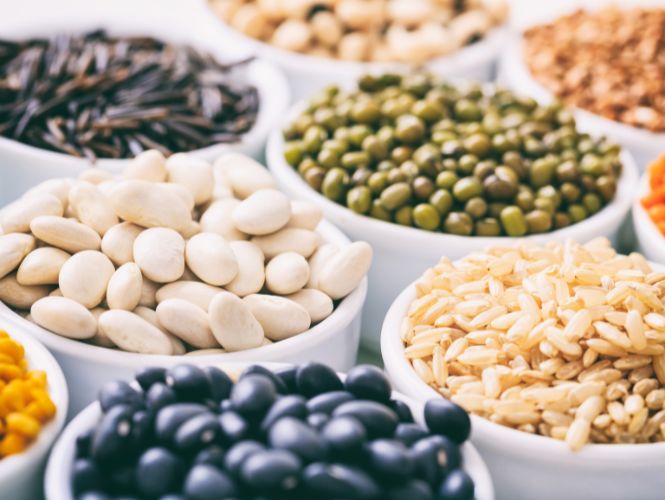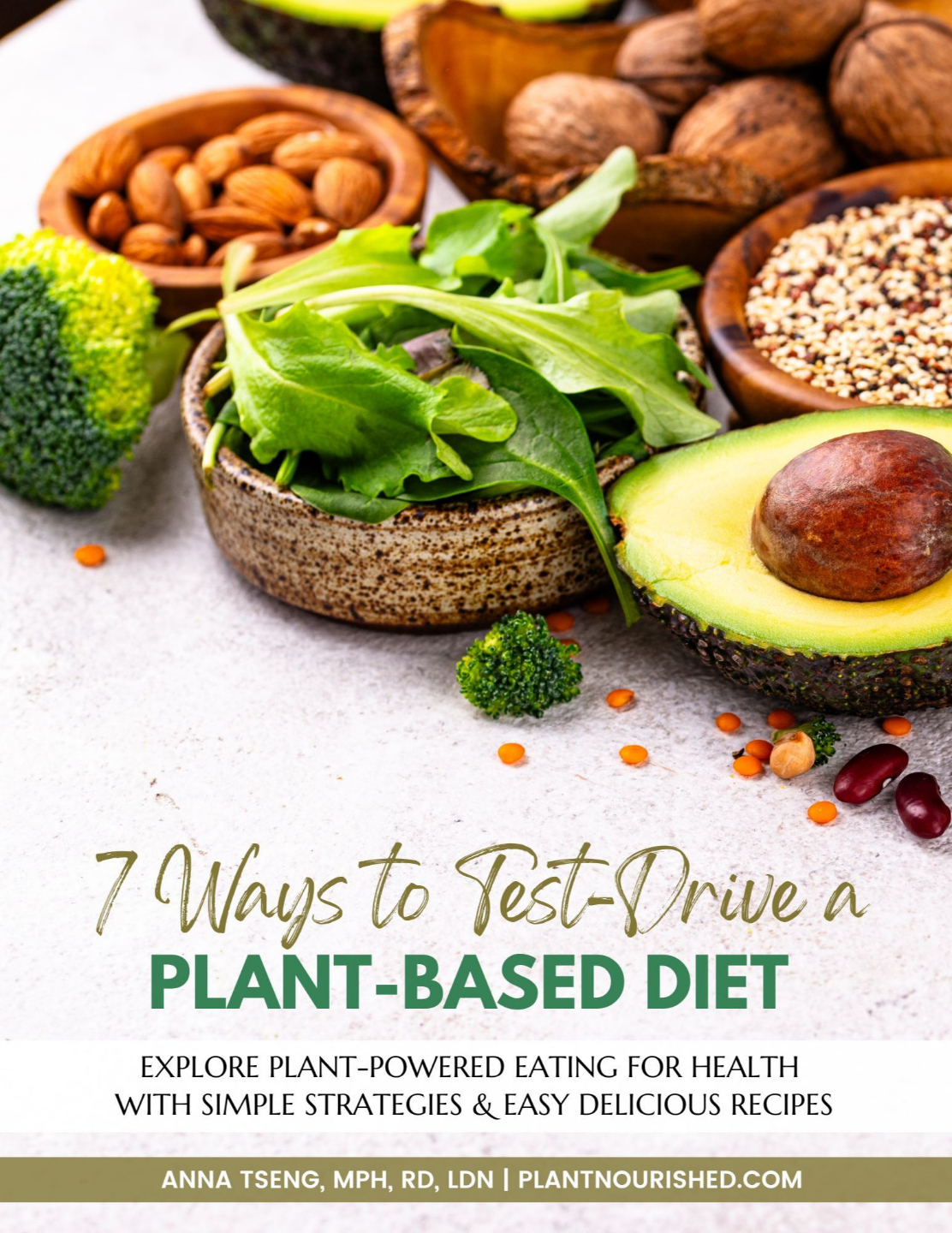The Benefits of Plant-Based Protein as You Age
May 20, 2023
Besides wanting to be healthier with less chronic disease, for those who are aging and reaching the ‘golden years’ and beyond, there are often two other key concerns – preventing muscle loss and reducing falls. So, can a diet high in plant-based protein help you or your loved ones in both these areas? This article reviews the results of some recently published studies on this topic, covers top natural plant-protein-rich sources, and shows how you can incorporate more good plant-based protein sources into your meals.
Heard of Sarcopenia?
First, let’s talk about a natural process called sarcopenia that begins over time as we age. This is a geriatric disease defined by a progressive loss of skeletal muscle mass and loss of muscle function. Its prevalence in the elderly population can range from 5 percent to 50 percent. This is due to variability because of factors such as differences in gender, age, pathological conditions as well as diagnostic criteria. However, nutrition and exercise are important interventions that can build muscle mass, strength and function.
Understandably, sarcopenia is a condition that needs awareness in the elderly population. Now a key question is this - can eating a diet high in plant-based protein be protective and slow down the process of sarcopenia? Well, let’s look at two recent studies to find out!
Protein Intake & Muscle Mass
In December 2022, the results of a large cross-sectional study by researchers in China were published. This analysis included 4,826 participants (aged 60 years and above) from the dataset of the China Health and Nutrition Survey (CHNS) 2018. This study included records of appendicular skeletal muscle mass (ASM) that were obtained using the bioelectrical impedance analysis (BIA), and protein intake was assessed using 3-day, 24-hour dietary recalls using questionnaires administered during in-person interviews.
The findings? In the elderly Chinese population examined, two-thirds of dietary protein intake came from plant sources. This referred to plant-based protein sources from cereals, tubers, starches, legumes, vegetables, fruits, fungi, algae, nuts, and seeds. After adjusting for all covariates, higher levels of total dietary protein intake and vegetable protein intake were associated with higher muscle mass, showing an increasing trend (p trend < 0.05).
The researchers observed that the amount of total dietary protein intake and plant protein intake in normal muscle mass participants were higher than in their respective counterparts. Compared with the reference group (the lowest total protein intake group), the highest vegetable protein intake group had increased muscle mass by 0.76 kg among men and by 0.35 kg among women compared to the reference group (the lowest vegetable protein intake group). However, the association between animal protein and muscle mass was not significant.
It is theorized by the study authors that although animal-based protein has been widely acknowledged to have better digestibility and bioavailability than plant-based protein, the ascorbic acid found in vegetables and fruits can enhance plant protein absorption, not to mention greater amounts of plant-based proteins are consumed per meal.
Less Risk of Frailty
Another study published in 2022 examined the relationship between the risk of frailty and protein intake among older women in the Nurses’ Health Study. The final data set analyzed consisted of 85,871 women (60 and over in age). During the long follow-up period of over 30 years, intake of protein was measured via diet questionnaires, while the occurrence of frailty was assessed every 4 years up to 2014.
Here are the findings. During the follow-up period, a total of 13,279 incident cases of frailty were documented. Researchers observed that women with a higher intake of plant protein had a lower risk of developing frailty after adjustment for all relevant confounders. In fact, the study authors reported that substituting plant-based protein for animal protein, especially non-dairy animal protein, was associated with a lower risk of frailty by up to 42 percent!
In contrast, those with a higher intake of animal protein intake had a higher risk of frailty. This study also found that the intake of total and dairy protein showed no significant association with frailty. Are you surprised?
Good Plant-Based Protein Sources

Overall, it is an encouragement to learn that a higher intake of plant protein may be associated with a lower risk of frailty. It is also great to know that higher levels of total dietary protein intake and vegetable protein intake are correlated with higher muscle mass.
Now although all plant-based foods contain protein, there are certain plant-based food categories that are especially good protein sources. These include legumes (such as black beans, kidney beans, split peas, white beans, lentils, and chickpeas), nuts, seeds and certain whole grains (like quinoa and buckwheat).
So how do you incorporate these plant-based protein foods into your meals? This is easier than you think! Add a legume-based soup like split pea soup or lentil soup to your meals or have it as a main meal. Add some canned or cooked red kidney beans to your leafy salad. Sprinkle crushed nuts and a handful of seeds into your morning oats or add a spoonful of almond butter to your smoothie. There are so many ways to give your meals and snacks a plant-powered protein boost!
Sources:
- Papadopoulou SK. Sarcopenia: A Contemporary Health Problem among Older Adult Populations. Nutrients. 2020 May 1;12(5):1293. Accessed April 28, 2023.
- Ouyang Y, Huang F, Zhang X, Li L, Zhang B, Wang Z, Wang H. Association of Dietary Protein Intake with Muscle Mass in Elderly Chinese: A Cross-Sectional Study. Nutrients. 2022; 14(23):5130. Accessed April 28, 2023.
- Struijk EA, Fung TT, Rodríguez-Artalejo F, Bischoff-Ferrari HA, Hu FB, Willett WC, Lopez-Garcia E. Protein intake and risk of frailty among older women in the Nurses' Health Study. J Cachexia Sarcopenia Muscle. 2022 Jun;13(3):1752-1761. Accessed April 28, 2023.



